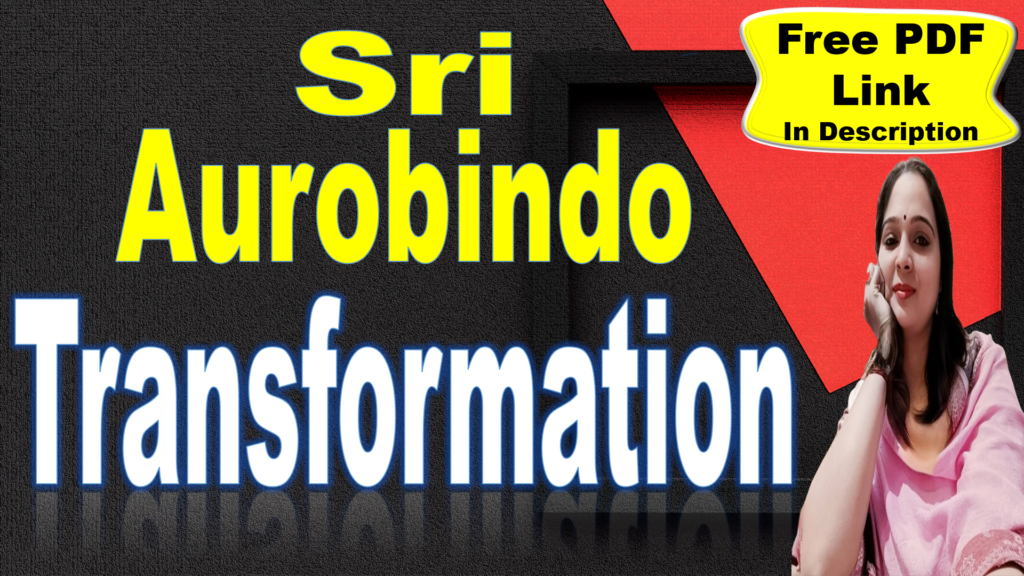
Sri Aurobindo Biography
1. Early Life
Aurobindo Ghose was born on August 15, 1872, in Kolkata, India.
He was sent to England at a young age for his education, where he excelled academically and won a scholarship to study classics at King’s College, Cambridge.
During his time in England, he became increasingly interested in the Indian independence movement.
2. Political Activism
In the early 1900s, Aurobindo became a prominent figure in the Indian independence movement. He was a passionate advocate for India’s freedom from British colonial rule.
Aurobindo was arrested in 1908 for his involvement in revolutionary activities against British rule, although he was later acquitted. His time in prison deepened his resolve and spiritual pursuits.
3. Spiritual Transformation
Shift to Spirituality: After his release from prison, Aurobindo withdrew from political activism and turned towards spiritual exploration. He experienced a profound spiritual awakening in 1910, which led him to settle in Pondicherry, where he dedicated his life to spiritual practice and writing.
Integral Yoga: Aurobindo developed a system of spiritual practice known as Integral Yoga, which integrates various paths of yoga (karma, bhakti, jnana, and others) to achieve spiritual evolution and transformation. His approach emphasizes the union of the individual soul with the Divine.
4. Literary Contributions
Sri Aurobindo was a prolific writer. His literary works include poems, essays, and philosophical treatises. His poetry, including sonnets, often reflects themes of spiritual evolution, transformation, and the divine.
Notable Works: Some of his key literary contributions include:
Savitra: An epic poem exploring the spiritual journey of the soul.
The Life Divine: A philosophical work outlining his vision of the evolution of consciousness.
Synthesis of Yoga: A comprehensive guide to his Integral Yoga.
Essays on the Gita: An interpretation of the Bhagavad Gita from his spiritual perspective.
5. Philosophy
Spiritual Evolution: Aurobindo’s philosophy centers around the idea of spiritual evolution, where human beings are seen as evolving towards higher states of consciousness and divinity.
The Supramental: He introduced the concept of the Supramental, a higher state of consciousness that transcends ordinary human mental and spiritual experiences. He believed that humanity is destined to evolve to this higher state, which would bring about a transformation of life on Earth.
6. Legacy
Sri Aurobindo Ashram: In 1926, Aurobindo established the Sri Aurobindo Ashram in Pondicherry, which became a center for spiritual practice and study. The ashram continues to be a place of learning and spiritual development.
Aurobindo’s teachings have had a profound impact on Indian philosophy, spirituality, and literature. He inspired many followers and spiritual seekers, both in India and around the world.
The city of Auroville, founded in 1968 near Pondicherry, is a living tribute to his vision of human unity and spiritual progress.
7. Death
Sri Aurobindo passed away on December 5, 1950. His teachings and legacy continue to influence spiritual thought and practice, making him one of the most significant figures in modern Indian spirituality.
Word Meaning
| Tough Word | Meaning in English | Meaning in Hindi |
| Subtle | Delicate or not obvious | सूक्ष्म |
| Stream | A flow of liquid or air | धारा |
| Members | Parts or organs of my body | अंग |
| Might | Power or strength | शक्ति |
| Pageant | A public entertainment consisting of a procession of people in elaborate, colorful costumes | भव्यता |
| Illumined | Lighted or made clear | प्रबुद्ध |
| Rapture | Intense joy or pleasure | उल्लास |
| Opal | A type of gemstone with various colors | ओपल |
| Hyaline | Clear and glassy | पारदर्शी |
| Influx | The arrival or incoming of a large amount of something | प्रवेश |
| Vassal | A person who holds land from a lord in return for loyalty | जागीरदार |
| Flesh | The soft substance of the body, especially muscle | मांस |
| Slave | A person who is the legal property of another and is forced to obey them | गुलाम |
| Leaden | Heavy, dull, or unyielding | भारी |
| Mesh | A material made of a network of wires or threads | जाल |
| Unhorizoned | Not limited by boundaries | सीमाओं से मुक्त |





